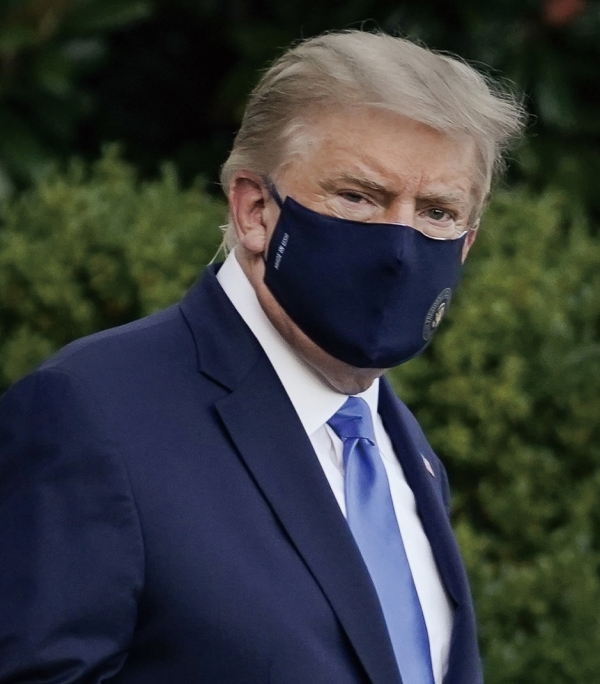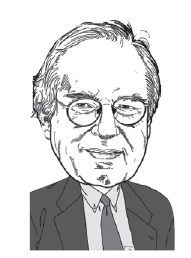
나는 미국에서 귀국한 뒤 두 번째로 서울 자택에서 2주간 자가격리에 들어갔다.
첫 번째는 지난 4월 공항에서 검사를 받고, 정부가 새로 입국하는 사람들을 청소년 캠프에 하룻밤을 묵게 하고 하루가 지난 후에 음성 판정을 내리고 집으로 돌려보냈다.
두 번째는 이 달 나는 공항에서 집으로 가는 것이 허용되었고 그리고 나서 3일 이내에 지역 보건소에 가서 검사를 받으라고 말했다. 두 번 모두 공항에서 내 휴대전화에는 체온과 기침, 두통, 발열 등 내 상태를 매일 두 번 보고하는 자가진단 앱이 설치됐다.
이러한 요구조건은 도착 즉시 검사를 받거나 질병의 징후를 보이지 않는 한 검사를 받으라는 말을 듣지 않는 미국의 요구조건보다 훨씬 엄격하다. 또한 미국에서는 자가진단 앱에 대해 들어본 적도 없다
. 워싱턴에 있는 내 주치의에게 코로나 검사를 해줄 수 있느냐고 물었을 때 그는 그 시설은 없지만 그들이 검사를 하는 곳으로 나를 보낼 수 있다고 말했다. 그는 내가 아무런 증상이 없었으므로 검사가 필요하지 않다고 말했다. 지금까지 나는 한국에서만 검사를 받았다.
그러나 코로나 확산에 대한 한국의 시스템이나 한국의 우려를 비판하기는 어렵다. 한국은 질병의 발생과 싸운 부러운 기록을 가지고 있다. 그것을 통제하기 위해서는 엄격한 조치가 필요하다. 그러한 조치는 과연 어느 시점에서 집회의 권리, 학교수업 또는 예배를 드릴 권리 혹은 공식적인 정책에 반대할 권리를 억압할 수 있는가.
경찰이 서울 중심부에 바리케이드를 쳐 정부에 반대하는 보수 세력들이 코로나의 두려움으로 길거리에서 쫓겨나기 전에는 정기적으로 해왔던 대규모 시위를 하지 못하도록 막은 것이 의문이다. 같은 질문들이 일부 지역에서 유행병이 거의 통제할 수 없을 정도로 확산된 미국 전역에 울려 퍼진다.
주지사와 시장들은 이에 대해 어떻게 할 것인가에 대해 서로 다른 견해를 갖고 있다. 일부 주에서는 학교와 대학을 전면 폐쇄했다. 전문적이고 대학간 스포츠 프로그램은 일반적으로 빈 경기장과 관중석 앞에서 불규칙하게 진행된다. 마스크는 일부 건물, 교통 시스템에서는 의무적으로 사용해야 하지만 모두에게 적용되는 것은 아니다.
보수 단체 시위 막은 한국 정부의 조치에 ‘의문’
지난 5월 미니애폴리스에서 경찰이 조지 플로이드를 살해한 후 미국에서 일어난 항의의 폭발은 매우 복잡한 문제를 안고 있다. 시위자들은 코로나 대유행의 확산을 전혀 우려하지 않고 미국의 주요 도시에서 시위를 벌여왔다. 동시에 한국과 마찬가지로 미국의 일부 종교 지도자들은 예배를 드릴 권리를 요구해왔다.
지자체장들과 시장들은 어떻게 대응해야 할지 모른다.이 모든 문제들 위와 그 너머에 11월 3일 상원의원 100석 중 3분의 1, 435명 하원의원 전원과 대선에 대한 선거 캠페인이 걸려 있다. 이미 코로나에 시달렸던 트럼프 대통령은 상당한 군중들 앞에 모습을 드러낼 것을 기대했던 것을 취소해야 했다.
그의 민주당 라이벌인 바이든 전 부통령은 여전히 건강하지만 이미 공개 활동을 자제했다. 이들은 트럼프 대통령이 바이든의 말을 가로막을 때마다 바이든은 “닥쳐”라고 말하는 등 난타전을 거듭한 끝에 2차 토론을 포기해야 했다.
트럼프 대통령과 백악관 참모들은 코로나가 위협이 되지 않는 것처럼 행동하기를 원하지만 사실은 백악관에 있는 수 십 명의 사람들이 감염된 것이다. 사실 백악관을 슈퍼 전파자로 규정하는 것이 가능하다.
방역과 정치적 통제, 한미 공통의 고민
코로나 대유행이 미국 선거 캠페인에 미치는 영향은 한국과는 상당히 다른 문제를 제시한다. 주정부와 지방정부는 군중 앞에서 정치적 연설을 중단하는 것을 꺼리고 있지만 명백히 그들은 사람들이 선거운동이나 반정부 시위에서 가까이 모여드는 것의 위험성을 고려해야 한다. 유행병은 정치적 또는 이념적 차이와 상관없다.
그러나 정치인과 열성 종교인들은 종종 정부가 이런저런 명분으로 언론의 자유와 집회의 자유를 고의적으로 막았다고 비난한다. 그런 점에서 코로나에 대한 반응은 한국과 상당히 유사하다. 그러나 한 가지 큰 차이점은 미국 사회가 훨씬 더 확산되어 있다는 것이다. 미국은 한국처럼 국가 경찰력이 없다.
가끔 국가방위군으로부터 시위 진압 명령이 내려지기도 하지만 당국은 서울 중심부에 군중이 모이는 것을 막는 버스 행렬과 펜스 형태와 같은 물리적 제약을 가하지 않고 있다. 그러나 한미 양국은 대유행을 빌미로 상대방을 억압할 수 있는 공권력의 위협에 대해 공통된 우려를 갖고 있다.
트럼프나 바이든을 반대하거나 옹호하는 사람들은 지방 당국이 정치적 목적을 위해 권력을 남용하고 있다고 비난했다. 코로나와의 전쟁에서 반대파 탄압과 질병 통제 사이를 선 긋는 것은 쉽지 않다.
번역 미래한국 편집부

In the U.S., as in Korea, COVID-19 Forces Issues of Free Speech and Right to Protest
For the second time, I’ve gone into quarantine for two weeks at my place in Seoul after returning from the U.S. The first time, in April, I was tested at the airport, sent overnight to a youth camp taken over by the government for new arrivals, pronounced negative a day later and sent home.
The second time, this month, I was permitted to go home from the airport, then told to go to a local public health center within three days for testing. Both times, a self-diagnosis app was installed in my mobile phone at the airport for reporting twice daily on my condition, including my temperature and any signs of coughing, headache or fever.
These requirements are far more stringent than those in the U.S., where no one is tested on arrival or told to get tested unless showing signs of the disease. Nor have I ever heard of a self-diagnosis app in the U.S. When I asked my doctor in Washington if he could test me for COVID-19, he said he did not have the facilities but could send me to a place where they did it. Since I did not have any symptoms, he said a test was not necessary. So far I’ve only been tested in Korea.
It’s difficult, however, to criticize the Korean system or Korean concern for the spread of COVID-19. The country has an enviable record in battling outbreaks of the disease. Stringent measures are needed to keep it under control. But then, at what point do such measures amount really to suppression of the right to demonstrate, to hold classes or religious services or to oppose official policies? That’s the question as the police set up barricades around central Seoul that prevent conservative foes of the government from staging massive protests as they were doing regularly before fears of the virus forced them off the streets.
The same questions reverberate across the U.S. where the pandemic has spread almost out of control in some areas. State governors and city mayors have widely different views on what to do about it. In some states, they have shut down schools and universities entirely. Professional and inter-collegiate sports programs go on erratically, generally before empty stadiums and stands. Masks are mandatory in some buildings, on some transportation systems, but not on all.
The outburst of protests in the U.S. after the killing of George Floyd by a police officer in Minneapolis in May have greatly complicated matters. Protesters have staged demonstrations in major American cities without appearing at all concerned about spreading the pandemic. At the same time, some religious leaders, in the U.S. as in Korea, have demanded their right to hold services. Local governors and mayors appear uncertain as to how to respond.
Above and beyond all these issues hangs the campaigning leading to the presidential election and elections on November 3 for one third of the 100 Senate seats and all 435 members of the House of Representatives. President Donald Trump, having already suffered from COVID-19, has had to cancel what he had hoped would be appearances before substantial crowds. His Democratic Party foe, Joe Biden, the former vice president, still healthy, had already limited public appearances. They have had to forego a second debate after a fractious initial debate in which Trump repeatedly interrupted Biden and Biden told him to “shut up.”
Trump and his White House staff would like to behave as though COVID-19 was not a menace, but the fact is that several dozen people in the White House have come down with the disease. It’s possible, in fact, to identify the White House as a super-spreader. The impact of the pandemic on election-year campaigning in the U.S. presents quite different problems from those in South Korea. State and local governments are reluctant to halt political speeches before crowds, but obviously they have to consider the dangers of people clustering close together whether at campaign rallies or anti-government protests. The pandemic does not make political or ideological distinctions
Politicians and religious zealots, however, often accuse the government of deliberately blocking free speech, the freedom to demonstrate for or against one cause or another. In that sense the response to COVID-19 is quite similar to that in Korea. One big difference, though, is that U.S. society is far more diffused. There is no national police force as in Korea. Troops from the National Guard are sometimes ordered to curb protests, but authorities have yet to impose the kinds of physical constraints in the form of rows of buses and fencing that stops crowds from gathering in central Seoul.
The U.S. and Korea share common concerns, however, about the threat posed by government forces who would use the pandemic as a pretext to stifle their opponents. Advocates for and against Trump or Biden have accused local authorities of abusing their power for political purposes. In combating COVID-19, it is very difficult to draw the line between oppressing enemies and suppressing the disease.
외부게재시 개인은 출처와 링크를 밝혀주시고, 언론사는 전문게재의 경우 본사와 협의 바랍니다.


